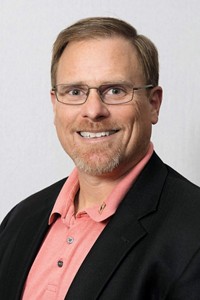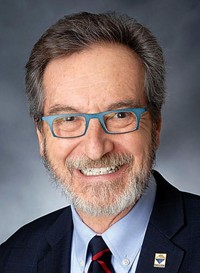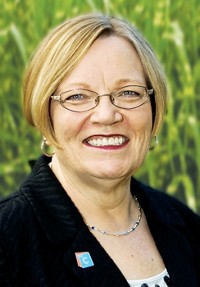Advertisement
Grab your lab coat. Let's get started
Welcome!
Welcome!
Create an account below to get 6 C&EN articles per month, receive newsletters and more - all free.
It seems this is your first time logging in online. Please enter the following information to continue.
As an ACS member you automatically get access to this site. All we need is few more details to create your reading experience.
Not you? Sign in with a different account.
Not you? Sign in with a different account.
ERROR 1
ERROR 1
ERROR 2
ERROR 2
ERROR 2
ERROR 2
ERROR 2
Password and Confirm password must match.
If you have an ACS member number, please enter it here so we can link this account to your membership. (optional)
ERROR 2
ACS values your privacy. By submitting your information, you are gaining access to C&EN and subscribing to our weekly newsletter. We use the information you provide to make your reading experience better, and we will never sell your data to third party members.
Policy
From Science To Politics
Programs help scientists get involved in policy world
by Rochelle F. H. Bohaty
October 13, 2008
| A version of this story appeared in
Volume 86, Issue 41
FEW ELECTED OFFICIALS have a basic knowledge of science, yet they are asked daily to make complex decisions about scientific issues such as climate change, education, energy, health care, and pollution.
To help bridge this disconnect, nonpartisan advocacy groups such as Scientists & Engineers for America (SEA) and professional scientific societies, including the American Chemical Society, are providing the tools and opportunities scientists need to get involved in the political process. Such involvement ranges from running for office to writing to congressional representatives to becoming informed voters.
"It is really important that scientists and engineers are aware of the political scene and the possible contributions that they can make," says Lesley Stone, executive director of SEA. "Scientists and engineers also have specific subject-area expertise that can bear on some of the obstacles our society faces today," she explains, adding that scientists have skills that translate well for a political career, such as problem solving and critical thinking.
Of the 538 members of the current Congress, only a few members have a physical science or engineering degree. And of those, even fewer hold a doctoral degree in either discipline. In fact, the House of Representatives has only four Ph.D. physical scientists (three physicists and one chemist), and the Senate has none.
Rep. John Olver (D-Mass.) is the sole Ph.D. chemist on Capitol Hill. Olver received a doctoral degree in electrochemistry from Massachusetts Institute of Technology in 1961. He earned a bachelor's degree from Rensselaer Polytechnic Institute in 1955 and a master's degree from Tufts University in 1956.
"I have always enjoyed the process of gathering data, forming a hypothesis, and then testing that hypothesis," Olver tells C&EN. Politics is no different from the scientific method, he suggests.
During his more than 17 years in the House, Olver says, "my background in science has greatly contributed to my understanding of climate change and alternative energy." And for this reason, he believes, his colleagues look to him for a "reasonability check" on these policy issues.
Rep. Nancy Boyda (D-Kan.) is another chemistry-trained representative who walks the halls of Congress. She earned a bachelor's degree in chemistry from William Jewell College in 1977, and worked for the Environmental Protection Agency as an analytical chemist.
Boyda agrees with Olver that knowledge of chemistry has come in handy during her almost two years in the House. Specifically, she says, her training has helped her connect with constituents. Boyda explains that when she tours industry facilities in her Kansas district, she not only sees men and women working in a lab, but she also understands what they are trying to do and the benefits obtained from their products.
Having more science-minded people in Congress would be beneficial, Boyda tells C&EN. Scientists think systematically and are knowledgeable in areas of science that are the focus of many policy debates, she says. Early this summer, Boyda called a meeting to discuss energy technologies with fellow science-minded colleagues. She says they discussed the energy crisis and ways to move forward.
Both Olver and Boyda are up for reelection in November.
TO INCREASE the number of people like Olver and Boyda in Congress and other elected positions, SEA has launched an election-training program to encourage and support scientifically trained individuals interested in running for office, according to Stone. The program includes workshops and online tools that are open to scientists and engineers.
SEA held the first workshop this past May. Cosponsored by a number of scientific organizations that included ACS, the American Institute of Physics (AIP), and the American Association for the Advancement of Science (AAAS), the workshop gave attendees an opportunity to hear from scientists campaigning for political office, as well as from campaign experts and grassroots coordinators.
"Of the almost 100 workshop participants," Stone tells C&EN, "Eighteen said they were likely or very likely to run for political office" at some level in the near future.
One outcome of the workshop is the online portal Campaign Lab. This new tool allows users to ask SEA experts questions on political campaigning and enables those who can't attend the workshop to ask questions and read those posed by others. Workshop participants can also use the tool as they proceed through the campaign process.
Stone imagines that questions posed in the Campaign Lab will range from fundraising to "get the word out" strategies. SEA will post queries along with the answers on a weekly basis.
SEA plans to hold a similar workshop in November 2009. The schedule will give attendees time to meet filing deadlines, which are typically in January and February for the following year's elections.
Stone acknowledges that the number of mentors for science-trained individuals who want to enter the political arena is limited because only a few scientists have held office. To help connect the few mentors to those aspiring for political office, SEA is thinking of establishing a mentoring program, she says.
In addition to a lack of role models, time may also contribute to the low numbers of scientists and engineers holding political office, Stone says. These professionals typically have limited time to dedicate to campaigning and holding elected posts, she explains.
But some scientists do manage to find time for both careers. Jesse W. Jones, a chemistry professor at Baylor University, is one of them. He was able to balance being a member of the Texas House of Representatives with his university commitments. For that, he credits the university for being flexible.
"Fortunately, Texas holds biannual legislative sessions wherein the Legislature meets for 140 days every two years," Jones says. "By agreement with the university, I was granted unpaid semester leaves and would work summers to augment the time away from campus."
WHEN RUNNING for office is not possible, other options exist. Scientists can inform policy through fellowships. Or they can join grassroots organizations that promote involvement in politics by encouraging members to write letters to Congress and attend public meetings of, for example, school boards and city councils. Alternatively, individuals can offer consulting services to elected officials or candidates running for office.
Several science policy fellowships are available. Typically, they are one year in length and are designed to educate fellows on the ins and outs of federal policy-making while the fellows provide scientific expertise to policymakers.
AAAS has taken the lead in organizing these fellowships, which are offered by AAAS and other professional societies, including ACS and AIP. The 2008–09 class of AAAS fellows consists of 121 first-year fellows and 52 others who extended their fellowship from the previous year.
"The result over the past 35 years is a network of 2,000 fellows who are more articulate and knowledgeable about conducting and communicating their science to support policy and more effective in leadership roles in the public and policy arenas, as well as academia, industry, and the nonprofit sectors," says Cynthia R. Robinson, director of science and technology policy fellowships at AAAS.
Inara M. Brubaker, a 1977 ACS science policy fellow, tells C&EN that the fellowship gave her insights into the legislative branch and provided the opportunity to interact with congressional representatives. These experiences were useful during her career as an industrial research chemist and as a member of various ACS committees and task forces.
Part of the AAAS fellowship is an orientation program, which is a two-week extensive course in science and technology policy and the inner workings of Washington, D.C. AAAS also offers a Science & Technology Policy Leadership Program once a year in November for nonfellows that is similar to the orientation program for fellows; however, it is only a weeklong "crash course," Robinson explains.
For those who can't take advantage of fellowships, there are other ways to get involved. Several organizations, including ACS and SEA, have politically active grassroots communities. SEA has student groups at a few universities, and several ACS local sections have government affairs committees. Both groups offer opportunities for scientists to engage with politicians, including lobbying on Capitol Hill or meeting with local government officials.
Baylor's Jones says he got his start in politics through his involvement in a local political organization that taught him about government policies and allowed him to work on issues that he felt passionate about.
SEVERAL ORGANIZATIONS are encouraging scientists to participate in policy-making by writing letters to their elected representatives. ACS's Legislative Action Network (LAN), for instance, promotes letter writing by providing updates on federal legislation and contact information for government officials. Since its inception in 1999, LAN has prompted alerts resulting in members sending 90,667 letters to policymakers, according to Bradley R. Smith, manager of grassroots and member involvement in ACS's Office of Legislative & Government Affairs (OLGA).
LAN alerts provide sample letters that can be electronically submitted by members to policymakers. This tool makes it "surprisingly easy to get your message to the policymakers who represent you," says Raymond J. Garant, OLGA's assistant director for public policy.
"LAN members sent 21,370 letters to policymakers during the debate and run-up to the passage of the America Competes Act," Smith tells C&EN. These letters helped secure funding increases for physical science research and education programs in science by supporting the legislation (C&EN, Sept. 15, page 31).
Another way to learn about candidates and elected officials' science policy positions is through SEA's Science, Health & Related Policies (SHARP) network. The interactive website allows online users to not only view but also update policy profiles of candidates. "SEA monitors the contents to ensure that the information is documented," says Stone. "To date, everyone has cooperated with the spirit of the project and added accurate information."
Scientists and engineers can also venture out on their own by working on campaigns, advising local politicians on science issues, and volunteering for the local government.
However science-minded individuals become involved in policy-making, their expertise helps ensure that evidence-based science is at the root of effective science policy.











Join the conversation
Contact the reporter
Submit a Letter to the Editor for publication
Engage with us on Twitter